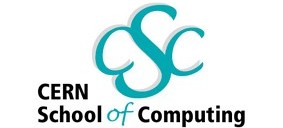|
Lectures |
Grid Technologies Series |
Grid
Team
|
6 |
|
|
GT-GT-L-1 |
Introduction to
the Grid computing and Current Grid Projects
Overview about the Grid Track, it's lectures, Grid computing in general and
several Grid projects that develop and deploy Grid software. A general
overview about the Grid architecture is given. |
|
|
|
|
GT-GT-L-2
(file 1)
GT-GT-L-2
(file 2) |
Grid Security
and Testbeds
Secure access to Grid resources is a major issue and is one of the first
things a user has to deal with when starting to use the Grid, i.e. the Grid
testbed or infrastructure. A basic overview about current security solutions
is given. Furthermore, CERN based Grid projects deploy large-scale testbeds
that spans several sites at various places all over Europe. Definitions are
given about what Grid services and resources are available and where they
can be used. A detailed overview about the main testbed/infrastructure is
given. |
|
|
|
|
GT-GT-L-3 |
Job Submission
/ Workload Management
Most of the users of the Grid software interact with the system by
submitting their jobs (executable programs) to a Resource Broker which does
a matchmaking on available and requested resources and then dispatches jobs
to resources in the testbed. This lecture provides background about the work
load management software system and details about how job submission is
done. |
|
|
|
|
GT-GT-L-4 |
Data Management
One of the main objectives of a Data Grid is the management of large
distributed data stores. This lecture gives an overview about replica and
meta data management as well as the software tools provided to deal with
data management problems. |
|
|
|
|
GT-GT-L-5 |
Information
Systems
In a Grid environment, there are several hardware and software resources
that can be used by end users as well as Grid services and applications.
Information systems are used to keep track of resources and also to monitor
the current status. Current solutions are presented in detail and how end
users can interact with them. |
|
|
|
|
GT-GT-L-6 |
Applications on
the Grid
In CERN based Grid projects, three major application domains are supported:
High Energy Physics, Earth Observation and Biomedical Applications. The talk
gives a brief overview about these applications and how they use and have
used Grid tools. |
|
|
|
Grid Services Series |
C. Bacon |
2 |
|
|
GT-GS-L-1
GT-GS-L-2 |
The two lectures
on Grid services give an introduction to current Grid and web service
technologies provided by the Globus Alliance. |
|
|
|
|
|
|
|
|
|
Networking QoS Basics Series |
F. Fluckiger |
2 |
|
|
GT-NQ-L-1
GT-NQ-L-2 |
Networking QoS Basics
This
series of two lectures is an introduction to Quality of Services (QoS)
issues and options in modern networks. Improving QoS guarantees, in
particular over the Internet is essential to support GRID services, in
particular for applications requiring high transfer rates.
The lecture series will first introduce the reasons for improving QoS as
well as a taxonomy of the major technical options. It will then focus on
three particular technologies: RSVP, Diffserv and MPLS, describing their
respective objectives, strengths and weaknesses, and how they can be
combined. The series will move on to a description of the TCP mechanisms and
ways of improving their effectiveness. Finally, the series will address the
transport of multimedia traffic over the internet, which is required to
support distributed collaborative environments. |
|
|
|
PKI Infrastructure Series |
A.
Pace |
1 |
|
|
GT-PK-L-1 |
An introduction to Cryptography and Public Key Infrastructure (PKI)
Still few doubts on what exactly is a certificate and how exactly works
certificate-based authentication? This presentation should answer these
questions and examine in depth the current technology that is available in a
multitude of security areas. It will also include an in depth discussion on
the practical challenges in deploying a certificate authority to avoid usual
pitfalls. PKI and Kerberos integration will also be briefly addressed. |
|
|
|
Hours |
|
11 |
|
Exercises |
EDG exercises |
Grid
Team |
6 |
|
|
GT-GT-E-1
GT-GT-E-2
GT-GT-E-3
GT-GT-E-4
GT-GT-E-5
GT-GT-E-6 |
Hands-on exercise on Job submission
Practical exercises where participants will
actively use DataGrid Software for solving Job Submission exercises. |
|
|
|
|
Hands-on exercise on Data Management and
Information Services
Practical exercises where participants will actively use DataGrid Software
for solving data management and information service exercises |
|
|
|
|
Follow-up of exercises E-1 and E-2 |
|
|
|
|
Follow-up of exercises E-3 and E-24 |
|
|
|
|
|
|
|
|
|
Mini-project |
Grid
Team |
2 |
|
|
GT-MP-E1
GT-MP-E2 |
In this project students will try to use their
specific applications and run them on the EDG DataGrid testbed. More details
will be given based on what students have achieved during the school |
|
|
|
Wrap up |
Grid
Team |
1 |
|
Hours |
|
9 |
|
Total
hours |
|
20 |

